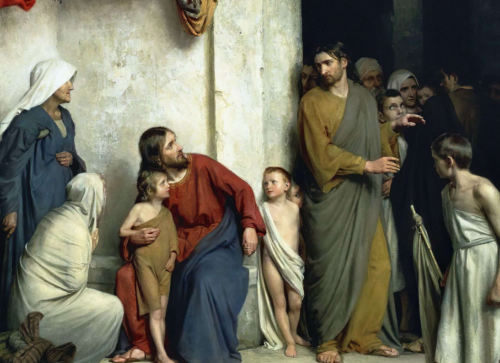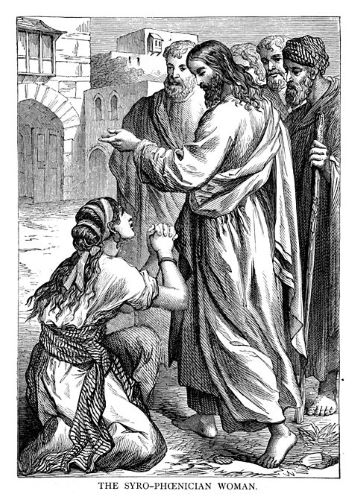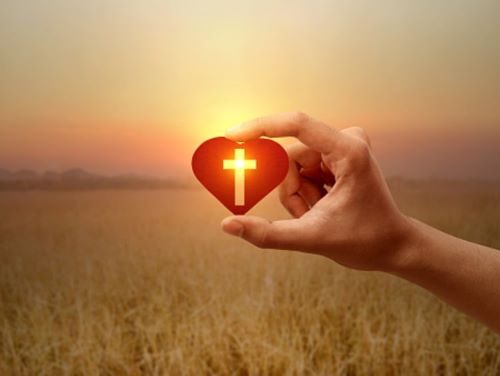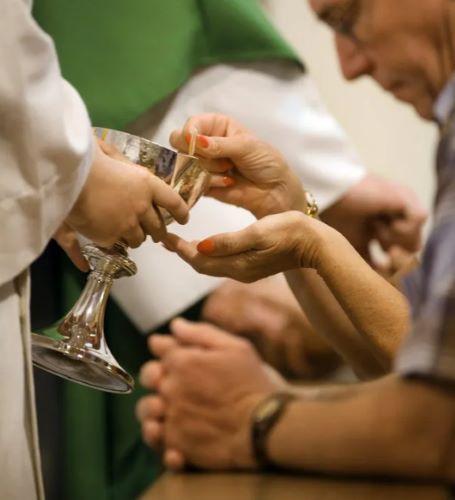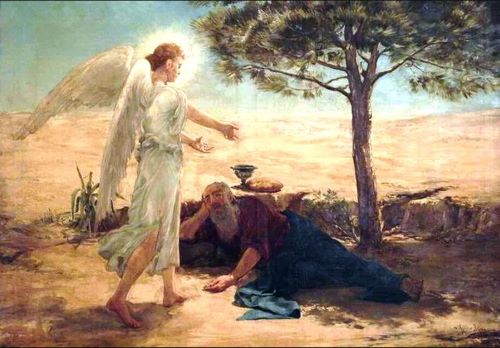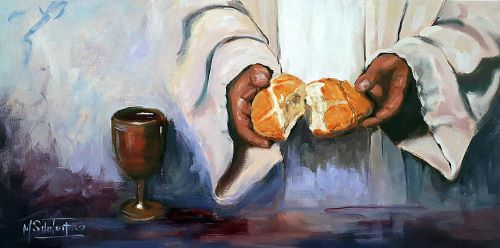Wounded and Risen
Year B
Acts 4:32-35
Psalm 133
1 John 1:1-2:2
John 20:19-31
May the words of my mouth… O God… speak your Truth…
It’s the second Sunday of Easter… and Eastertide lasts until May 23… until Pentecost… so we have several more Sundays to reflect on the paschal mystery… on the death and resurrection of Jesus… we are invited to consider the expectation-shattering reality of life… victorious over death… and what it means to be a community shaped by these events… by this victory which takes many forms… and finds one expression in our reading from Acts…
It’s tempting to ignore it though… it’s tempting to turn our gaze away from its radical narrative… because from our perspective as twenty-first century American Christians… it’s difficult to believe… that no one claimed private ownership of any possessions… but everything they owned was held in common… and that there was not a needy person among them… because those who owned land or houses sold them… and the proceeds were distributed to each… as any had need…
It’s tempting to ignore… because this group of people had organized themselves into a proto-communist community… and we can’t believe that this practice applies to us… I mean Exodus 21:7 gives me permission to sell my daughter into slavery… but that doesn’t apply any more… selling a child into slavery would be akin to trafficking… it’s an economic system that confronts almost all that we believe in… but apparently… those who had much sold what they had… so that those who had little didn’t have too little…
But it wasn’t only those described in Acts who engaged in this practice… Isaac Villegas… pastor of Chapel Hill Mennonite Fellowship… writes… when the early Anabaptists lived into this same Easter call… they were persecuted… Swiss authorities condemned their lives of faith… with threats of punishment… and a 1527 suppression decree from Zurich claimed that their economic practices were heretical… since they held… that no Christian may either give or receive interest or income on capital… and that all temporal goods are free and common… and everyone can have full property rights to them… and then… less than fifty years later… the Church of England denounced Anabaptists for their Christian economics… and this is even recorded on p. 876 of the Book of Common Prayer… in Section 38 of the Articles of Religion… where it states… The Riches and Goods of Christians are not common… as touching the right, title, and possession of the same… as certain Anabaptists do falsely boast…
There are some practical considerations when property is held in common… like who gets to use the yacht this weekend… but I think we can also see its underlying spirit… which is about sacrificial relationship…
The Gospel narrative takes place over two weeks… the first week… Thomas isn’t there… we don’t know where he’s gone… but apparently… fear didn’t keep him locked up with the other disciples… so he misses the chance to see Jesus… who gets in even thought the doors were locked… Thomas misses Jesus’ bestowing of peace… he misses out on Jesus breathing on him… he misses out on Jesus’ gift of the Holy Spirit…
The second week… Thomas was there… and I wonder what the others were doing all this time… but Thomas was there… and Jesus appeared again even though the doors were shut… the translation says shut even though it’s the same Greek word that previously was translated as locked… so whether the door was closed and locked or just closed… Jesus reappears…
Now this time… Thomas says nothing… but somehow Jesus knows what Thomas said when Thomas was alone with the disciples… and Jesus invites Thomas to do what Thomas said it was going to take for him to believe… we might wonder whether… when Thomas wasn’t looking… someone whispered to Jesus what Thomas had said… or whether it’s more like the story earlier in John’s Gospel… when Jesus transcends the limits of the five senses… and says he saw Nathanael sitting under the fig tree before Philip came to get him… but either way… underlying their interaction… is great tenderness… Jesus knows what Thomas needs… and he offers it without even being asked… and it is in this moment of offering… in this moment of vulnerability and tenderness… that a profoundly deep connection is made… that community is made… Jesus has sold his lands and his houses… and he has laid the proceeds at Thomas’ feet… and without even doing what he said it was going to take… Thomas proclaims… My Lord and my God…
Pastor Martin Billmeier writes… the skeptic in the crowd offers the loftiest confession of Jesus found in the four gospels… for a Jew to confess a human… even a resurrected human… as God is dicey stuff indeed… think of the first commandment with its insistence that Israel not represent God in wood or stone… nor attempt to portray God at all… except through the Word about God in the Torah… under the Law… to call a human being God is punishable by death… yet Thomas sees the face of God… in the face of Jesus…
And we say that we want… what Thomas wanted… to know resurrection for ourselves… to approach Jesus… to touch his wounds… or at least to see them… and Jesus is willing to comply… even without us asking… but I think far too often… it’s we who make Jesus unapproachable… untouchable… because to do so… is like approaching the Burning Bush… it’s like standing on holy ground… is like having God’s law written on our hearts… and when we come face to face with the Great I AM… with the Ground of Being… then our behavior must change… both individually and collectively… we have a God who is willing to give us what we need… but sometimes we sin… because we support systems which don’t allow us to give each other and God what they need…
The Greek word from which we get the word sin… is hamartia… it means… missing the mark… missing God’s mark for us both individually and collectively… and for a God who is all about unity… we sin any time we break relationship… and we can break relationship by the things we do… like saying hurtful things to those we love… or by the things we fail to do… like apologizing when we realize the impact we’ve had… that’s why the Ten Commandments… and the Two Great Commandments… are such powerful guides… because they call us out every time we treat someone in a way that’s different than how we’d want to be treated… when we pass laws that disenfranchise the marginalized… when we have an abundance of life’s gifts and others can’t even earn a living wage… when we who have much have too much… and those who have little have too little… it’s in these circumstances that we perpetuate sin… and we can see that when we understand that today’s reading from Acts embodies the second of the Two Great commandments… You shall love your neighbor as yourself…
The Good News is that Jesus is known by his wounds… the wounded Christ is risen… and the risen Christ is wounded… he is known because he bestows peace on the friends who abandoned him… he is known by the church as a whole which adopts Mary’s proclamation and says… We have seen the Lord… he is known because he grants the Holy Spirit… he is known because he gives them the keys to forgive sins…
The Good News… is that in this self-emptying… vulnerable… non-judgmental way… the risen Christ will not leave us alone… he will keep coming to us… whether we are locked away in fear like the disciples were… or are locked away from COVID… or locked away in the prisons of our minds… or we can remind ourselves how we have been healed from our non-physical wounds in ways that gave us new life…
The Christ mystery… located in this material and earthly world… is the only world we know… it is inseparable from own bodies… and inseparable from the world that God created and loves… how can we love ourselves and the world just as much…

